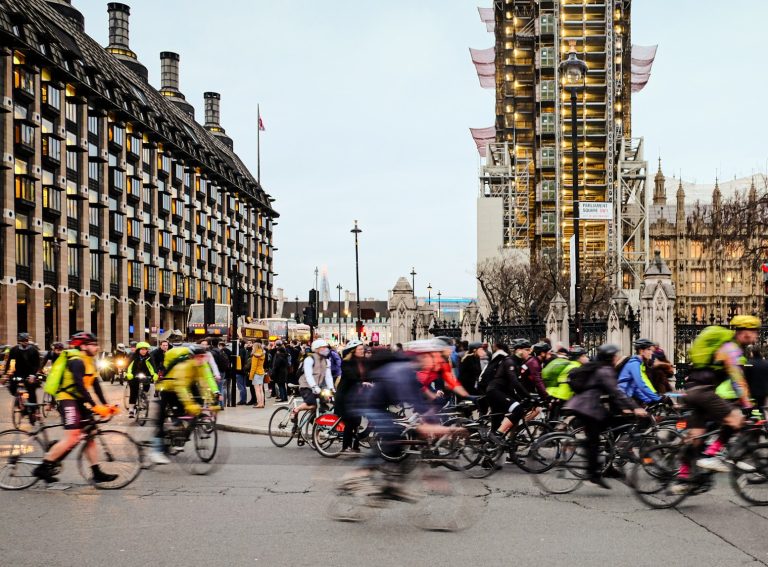Wales has reduced its national speed limit in residential and built-up areas from 30mph to 20mph making it the first country in the UK to do so.
The change will affect the speed limit on about 35% of Welsh roads and will cost £32.5m to roll out. The decision promises to reduce road deaths and noise pollution, while encouraging more active travel like cycling and walking.
Rod King MBE, Founder and Campaign Director of 20’s Plenty for Us, told Zag Daily: “20mph is a great foundation for active travel. It aligns with the hierarchy of road users which puts pedestrians, cyclists and e-riders above motor vehicles.
“It’s the single most effective way to deliver better, friendlier and fairer conditions for active travellers across populations.”
5x greater risk of death at 30mph
The risk of death if hit by a car travelling at 30mph is five times greater than if the car was travelling at 20mph, according to road safety campaigners Brake. Of the 1,014 people killed or severely injured on Welsh roads in 2022, more than 40% (421) were hit on a 30mph stretch of road.
According to Wales’ First Minister Mark Drakeford, the lower speed limit will only add a minute to the average drive and will save lives. “We will save 10 people’s lives in Wales every year as a result of that one minute contribution – it doesn’t seem an unfair bargain,” said Drakeford.
20mph only part of the solution
Industry experts agree that the speed reduction is a step in the right direction, however to maximise the benefits of the lower speeds, other measures must be taken.
Dudley Curtis, Communications Manager at European Transport Safety Council (ETSC), told Zag: “Safer, more appropriate speeds, will reduce the risks of crashes between motor vehicles and people out walking and cycling on Welsh roads. That safer environment could encourage more people to get out and about using more healthy modes of transport.
“While we welcome this move to 20 mph limits in urban areas, we obviously need to see investment in the right infrastructure such as separated cycle lanes as well.”
Despite reactions from conservatives that suggest the Labour party is punishing motorists, Curtis insists: “This is not a war on the motorist, it’s making the roads we all share safer for people walking and cycling, especially some of the most vulnerable groups, such as kids and older people.”
As transportation accounts for one-fifth of global emissions, lower speed limits combined with an increase in active travel also bodes well for emission reductions.
Leo Murray, Co-director of Possible, told Zag: “Not only is this going to make places in Wales both a safer and more enjoyable place to live, it will also clean our air and protect the climate.
“Evidence also shows that prioritising active travel and reducing car use has other benefits too, such as boosting economic productivity and improving health outcomes, which will save the NHS millions.”
Wales leads the way
Looking ahead, other UK countries may follow Wales’ lead.
Scotland is currently planning a 20mph norm for urban areas and villages by 2025. As recently as last week, Ireland announced its plans to reduce speeds across the country to 30mph on urban roads. London has also taken steps to introduce a 20mph speed limit on half of London’s roads, as well as introducing measures like the Ultra Low Emission Zone (Ulez), which will encourage people to drive less and either walk, cycle, or use public transport.
“As the climate crisis continues, politicians of all parties should show the same political courage as in Wales and London and start taking action to clean up communities across the UK,” said Murray.




